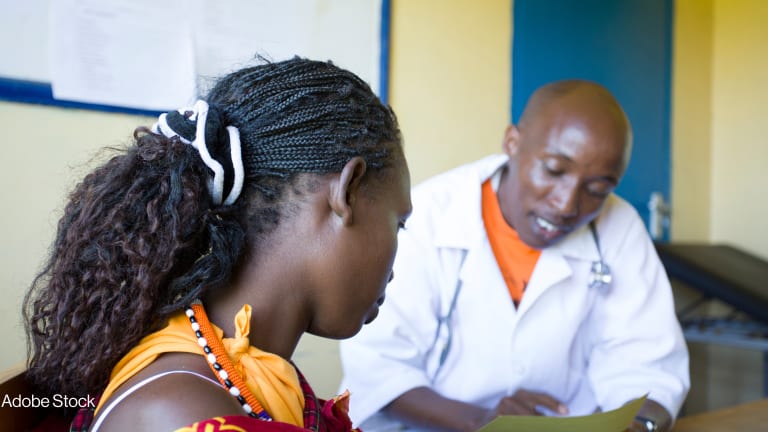
At last week’s 44th World Conference on Lung Health in Barcelona, Spain, the International Union Against Tuberculosis and Lung Disease and World Diabetes Foundation jointly issued a call to action against a global co-epidemic of diabetes mellitus and tuberculosis.
DM-TB embodies the sort of challenge we will increasingly face in the post-2015 development era. It’s also a challenge that our community and the global health system at large are — at present — not adequately positioned to solve.
TB kills more people each year than any other infectious disease except HIV and AIDS. TB stole 1.5 million lives last year according to new data recently reported by the World Health Organization.
There are also 2 billion people living with a latent TB infection — one person in three worldwide. People living with latent tuberculosis have no symptoms and in fact aren’t sick. However, latent TB can progress into infectious TB disease at any point in one’s lifetime — even decades after exposure. When we consider the source for future cases of tuberculosis, this pool of latent infection comprises a wellspring of stupefying proportions.
Now, consider diabetes. Diabetes is skyrocketing and is projected to rise from about 400 million people living with the disease today to 592 million by 2035. At the same time, its global distribution is shifting from predominantly high-income developed countries into developing countries. By 2035, 80 percent of people living with diabetes will be in low- and middle-income countries.
Of the 10 countries where diabetes will exert the most severe impact, six of them — China, India, Brazil, Indonesia, Pakistan and the Russian Federation — are already classified by WHO as high-burden countries for TB. These countries have great numbers of people fighting active tuberculosis disease, and even greater numbers living with latent TB infection.
If we fail to get in front of where tuberculosis and diabetes are together heading, we will all witness the same consequences witnessed with TB-HIV after years in which we had the requisite scientific evidence and policy guidance, but initially slow coordination and mobilization on the ground. That is, widespread needless suffering and preventable deaths.
We’re at a critical point when it comes to DM-TB. We have scientific and epidemiological evidence robust enough to justify high-level attention. And we have a strong policy framework, developed jointly by The Union and WHO, to guide a response.
Now we must mobilize. However, a concerted response requires a new level of organization and coordination that has not yet been tested at the scale required. Responding to TB-HIV requires similar coordination among many public health stakeholders, but they have one thing in common: All of them are in the fight against infectious diseases.
As Ben Hirschler from Reuters noted on Nov. 29, however, DM-TB “challenges the conventional approach of tackling independently infectious diseases, like TB, and chronic noncommunicable diseases,” like diabetes.
The countries facing down the persistent Ebola epidemic are grappling with a crisis they have never before had to face, as the virus had never been detected in West Africa until now. The sheer newness the challenge presents to the health system in the region has slowed the response — with tragic consequences.
With WHO already estimating that there are as many as 1 million people living with DM-TB — the same number of people living with TB-HIV co-infection — the challenge is here and now, speeding ahead of our collective efforts to stop it.
We must act together — we have no time to lose.
Want to learn more? Check out the Healthy Means campaign site and tweet us using #HealthyMeans.
Healthy Means is an online conversation hosted by Devex in partnership with Concern Worldwide, Gavi, GlaxoSmithKline, International Federation of Pharmaceutical Manufacturers & Associations, International Federation of Red Cross and Red Crescent Societies, Johnson & Johnson and the United Nations Population Fund to showcase new ideas and ways we can work together to expand health care and live better lives.
Read more #HealthyMeans articles:
● The next 'transformative change' leaders in global health
● #HealthyMeans tackling chronic disease
● How to help us live longer — and better — lives








